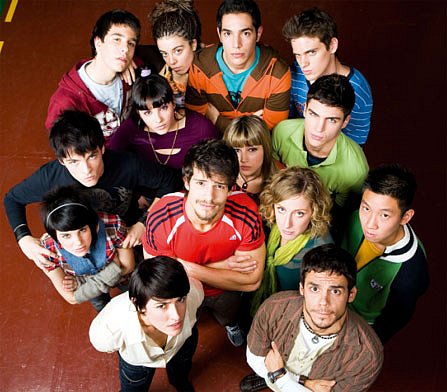There will soon be no young teachers in Belarusian universities

The Ministry of Education is concerned that graduate school is losing relevance to university graduates. Prestige of teaching activity is falling. Independent experts call the system of protection of scientific degrees imperfect. Universities already felt a shortage of young specialists. Who will continue to teach students, finds out “Tomorrow is your country”.
“In the last two years, we have been struggling to recruit graduate students, and in Minsk there is even a shortage in some universities,” the Minister of Education complained at a recent meeting with university graduates Alexander Radkov.
The Minister’s concern is shared by experts “Tomorrow is your country””. Professor, Department of National Economy and Public Administration, Belarusian State Economic University Nina Bogdan notes that Belarus is significantly behind in such an important indicator of the European innovative scoreboard as the production of graduate students and doctoral students per thousand people aged 25-34 years.
– In recent years, the proportion of university graduates who go to science has been declining. Education in terms of obtaining a candidate or doctorate degree becomes prestigious, the professor notes with bitterness.
The average efficiency of graduate school at the National Academy of Sciences 6%, and according to the Ministry of Education 4%, is the ratio of the annual number of graduate students who defended their dissertations on time and the total number of graduate students.
To save the situation a few years ago, it was decided to introduce a magistracy as a scientific and pedagogical level. According to the Higher Attestation Commission for 2006, after graduation, they defended themselves: until 1 years – 9% of the candidate dissertations approved by the Higher Attestation Commission annually, 1 – 2 years – 30%, 2 – 3 years – 16%, 3 – 5 years – 17%, 5 – 6 years – 14%. The initiators of the process of introducing the magistracy predicted that an increase in the preparation of scientific work would increase the proportion of candidate dissertations to about 40% on time.
“But it doesn’t seem like these measures to somehow improve the situation with the effectiveness of graduate school,” the former vice-rector of the European Humanitarian University notes Vladimir Dunaev. – In fact, young people are not interested in going to work in universities. Teachers generally receive little, and young teachers even less.
According to the Federation of Trade Unions of Belarus, the salary of a young university teacher is about 455 thousand rubles.
Protection without permission of the Higher Attestation Commission is invalid
In addition to the prestige of teaching work, according to Vladimir Dunaev, the imperfection of the dissertation protection system affects the low efficiency of Belarusian graduate school.
“It is a challenge to the norms of academic freedoms,” the expert believes. – In world practice, a degree is awarded to a specific university. In Belarus, part of the dissertations held by the university scientific council is rejected by the Higher Attestation Commission. Often, especially in the field of social and humanitarian sciences, the Higher Attestation Commission imposes assessment criteria that are not scientific, but political in nature.
On the other hand, graduate students are simply afraid to go out to defend their dissertation because they do not know how this will end.
Belarusians are also deprived of the opportunity, without the permission of the Higher Attestation Commission, to defend dissertations abroad, including Russia, with which there is a single educational space. And if someone defends without permission, his academic degree in Belarus does not count.
A student who graduated from a Belarusian university and received a doctorate abroad, wanting to return to Belarus, must transfer his dissertation, submit it to the university defense council, protect it again, then send the documents to the Higher Attestation Commission, which will decide whether to award him a PhD.
Who will teach students?
Vladimir Dunaev is convinced that isolation weakens Belarus’s position in the field of training of scientific personnel. Professor Nina Bogdan calls the tendency to decrease the quality of the teaching staff of universities abnormal. She is worried about the question: who will teach students if there is no competition for graduate school?
And the head of the Research Center of the Institute of Entrepreneurship and Management Igor Pelipascalls the situation rather strange when scientific work, better than the candidate dissertation, protected in Belarus, is not recognized.
– I do not think that an economist with publications in Western scientific journals of the middle level will want to return and work in the BGEU or in the BSU. Many would consider such a person to be not entirely adequate, the expert notes.
Meanwhile, a graduate of the Belarusian Economic University Oleg Tsyvinsky, who received a doctorate degree from the University of Minnesota, considers the idea of returning intelligence to their homeland to be completely normal.
– It is time to stop the outflow of scientific economic personnel from Belarus and create opportunities for the development of Belarusian economic science, which in some areas of knowledge has slowed down at the positions of half a century ago, – This is the position of Oleg Tsyvinsky, professor at Yale University.
Specialists may not return forever, but participate in educational processes in the country, creating alternative structures. Belarusians who study at doctoral programs in the field of economic science have completed them and work as professors abroad, already create a platform for studying the economy of Belarus and teaching Belarusians the basics of modern economic thought at the level of leading international universities.
There are similar precedents in the world – Bocconi University in Italy, for example, which Italians from top American universities returned to. Or the Russian School of Economics in Moscow.
“The creation of alternative structures in the field of economic education can at least partially solve the problem of the shortage of young teachers,” Igor Pelipas agrees. – And then the situation can somehow change free competition with universities existing in the country.
Vladislav PROTASKIN, Tomorrow is your country